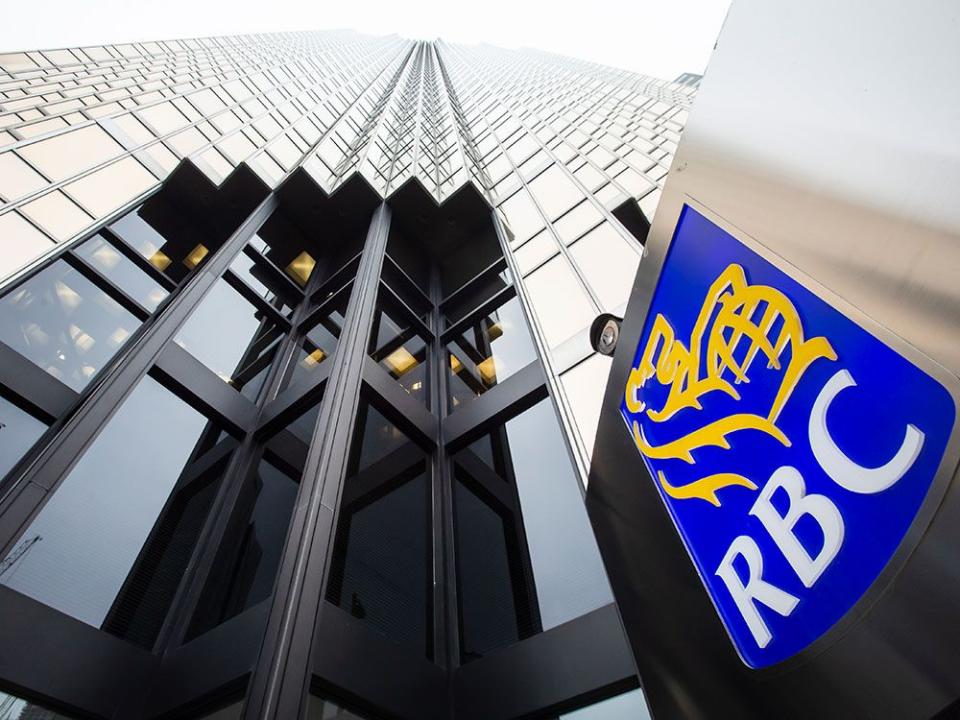RBC beats expectations despite profit drop due to higher bad-loan provisions

Record capital markets revenue helped the Royal Bank of Canada beat expectations in its first quarter earnings, but it was not enough to fully assuage analysts and investors in the face of a deteriorating credit picture and rising expenses.
RBC reported a 22 per cent year-over-year drop in net income, which clocked in at $3.2 billion for the three months ending Jan. 31 as higher loan-loss provisions and a federal tax weighed on results. On an adjusted basis, the bank’s earnings grew four per cent to $4.3 billion or $3.10 per share, largely fuelled by revenue growth across core banking and capital markets segments. Bloomberg analysts had been expecting $2.96 per share.
“Our results are a testament to our diversified business model underpinned by momentum from client-driven growth across our largest segments as well as the benefit from higher interest rates,” RBC chief executive Dave McKay said during a Mar. 1 conference call. “Our performance this quarter also reflected record capital markets revenue driven by strong global markets results as well as market share gains and investment banking in what has been a difficult industry-wide environment for advisory and origination activities.”
Canada’s largest bank did set aside more funds for loans that might go bad, as it expects the macroeconomic environment to worsen. Credit loss provisions were $532 million this quarter compared to $105 million this time last year.
RBC’s net income included the impact of new federal tax policies directed at banks and life insurers as well as a 1.5 per cent increase in the Canadian corporate tax rate, which kicked in for fiscal 2022.
A one-time 15 per cent tax on pandemic era profits was based on the average of 2020 and 2021 taxable income exceeding $1 billion. RBC said the bank will pay $1.2 billion in additional income taxes in equal instalments over five years as a result.
McKay said the bank was wary of rising expenses, which grew 17 per cent to about $7.7 billion in the first quarter from a year ago as the bank invested in technology and employee compensation. During the conference call, he reiterated that the bank was forecasting a mild recession and softer landing, and said the bank would continue to invest in growth.
“It’s a very complex operating environment,” McKay said. “Having said that, we’ve got to do better, and we’re going to do better.”
Profit in RBC’s core personal and commercial banking segment grew by eight per cent from a year ago to about $2.13 billion in the first quarter as net interest income rose. Average loan growth also increased by nine per cent driven primarily by a double-digit increase in both business lending and credit cards. Net income in this segment dipped slightly by one per cent quarter-over-quarter largely due to higher provisions for credit losses.
Capital markets profit rose nine per cent from a year ago to $1.2 billion, helped by a lower effective tax rate and higher revenue from the global markets division. A stronger capital markets segment has been a consistent bright spot for other banks reporting this quarter.
RBC’s wealth management segment eked out a gain of three per cent year-over-year to $848 million as rising rates drove higher net interest income.
The bank’s insurance segment profit fell 25 per cent to $148 million, weighed by higher capital funding costs.
RBC’s beat was met with a lukewarm reception among analysts and investors. Several analysts viewed the bank’s results with “neutral” or “mixed” readings as record trading revenue was offset by larger expenses and higher provisions for credit losses.
John Aiken, senior analyst and head of research at Barclays Bank PLC, said the underlying results were solid, but it wouldn’t be enough to assuage concerns over a riskier credit outlook.
Scotiabank CEO vows to improve shareholder returns after earnings miss
CIBC beats expectations despite profit drop as bank earnings kick off
“Royal posted a headline beat and managed to earn through higher-than-forecast provisions,” Aiken said in a note. “However, stronger-than-expected capital markets was almost solely the reason for the better-than-expected performance. Although its peers have not received full credit for similar results, RY has received better treatment for its capital markets in the past.”
Aiken added that it would be more difficult to look past the bank’s faltering credit performance.
National Bank of Canada analyst Gabriel Dechaine said in a Mar. 1 note that the bank’s expenses and net interest margins were disappointing and that he was “surprised” at the jump in gross impaired loans, which were up 18 per cent quarter-over-quarter and 21 per cent from last year at $2.6 billion.
He added, however, that those losses were expected to moderate since most customers are still current on loan payments.
Meny Grauman of the Bank of Nova Scotia said RBC’s beat was impressive, but with some reservations.
“It is hard to get too negative on a five per cent EPS beat, but certainly our view of the quarter is coloured by the fact that the bank’s Capital Market’s business did all the heavy lifting with a record trading quarter,” Grauman said. “In fact, all of (RBC)’s segment’s missed expectations except for Capital Markets (and Wealth which was essentially in line).”
Canaccord Genuity analyst Scott Chan also flagged the “significantly larger expenses” as taking away from RBC’s earnings beat.
Shares of RBC were down nearly four per cent at $133.52 in midday trading in Toronto.
• Email: shughes@postmedia.com | Twitter: StephHughes95

 Yahoo Finance
Yahoo Finance 